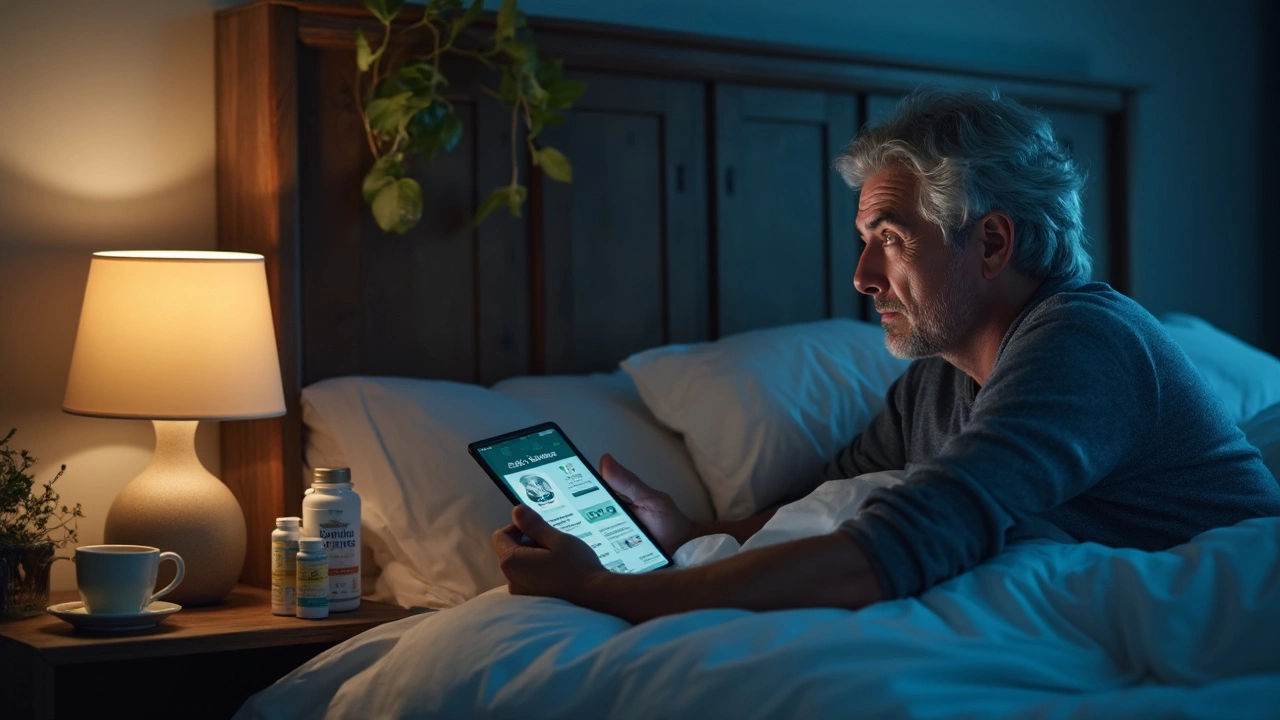Statin Sleep Side Effects — What You Need to Know
Worried that your cholesterol pill is messing with your sleep? You’re not alone. Some people on statins report trouble falling asleep, waking up at night, vivid dreams, or daytime tiredness. Most users don’t have these issues, but if sleep changes started after you began a statin, it’s worth paying attention.
How statins can change sleep
Statins lower cholesterol by blocking an enzyme in the liver. That’s their job. But that same change can sometimes affect the brain, muscles, or hormones in subtle ways. Clinical case reports and observational studies have linked statins—particularly simvastatin and atorvastatin—to sleep changes for some people. Common patterns include insomnia, frequent awakenings, and unusual dreams or nightmares. Muscle aches or cramps from statins can also wake you at night and reduce sleep quality.
Not everyone reacts the same. Age, other medicines, alcohol, and underlying sleep issues all matter. For example, combining a statin with certain drugs (like some antifungals or strong antibiotics) can raise statin levels and increase side effects. That can make sleep problems more likely.
Practical steps to sleep better on statins
Try these simple, direct actions before you panic.
- Track timing: Some people do better taking statins in the morning instead of at night. Talk to your doctor before changing the time, because some statins work best in the evening.
- Watch other meds: Check for drug interactions that increase statin levels. Your pharmacist can help.
- Review the type and dose: A lower dose or a different statin (like pravastatin or rosuvastatin) might cause fewer sleep issues. Don’t switch on your own—ask your prescriber.
- Improve sleep habits: Keep a regular bedtime, avoid screens before bed, limit late caffeine, and keep the bedroom cool and dark. Good sleep hygiene often reduces mild insomnia.
- Address muscle pain: If aches wake you, report them. Treating muscle symptoms can restore normal sleep.
- Short-term aids: Melatonin or brief behavioral therapy can help for a few weeks, but check with your doctor first.
If your sleep got worse right after starting a statin, make a note of when it started, how severe it is, and whether other factors changed (new meds, stress, caffeine). Bring those notes to your appointment—clear details help your doctor make the best choice.
If you notice severe symptoms—confusion, marked mood changes, severe muscle weakness, or signs of liver trouble—seek medical help quickly. For mild to moderate sleep problems, many people find simple changes or a different statin fixes the issue without giving up the heart protection statins provide.
Want a deeper read? Our site has related posts on simvastatin and mental health and on cholesterol meds like Vytorin that discuss side effects and management tips. Talk with your healthcare team and use these tips to get better sleep while staying heart-safe.
Statin-Induced Sleep Side Effects: Practical Fixes for Better Rest
Statin medications can sometimes mess with your sleep and leave you drained the next day. This article digs into practical steps—like smart supplement choices, lifestyle tweaks, and talking to your doctor about dose changes—to make statin-induced sleep problems easier to handle. You’ll find science-backed advice, real-world tips that actually work, and insights to help you sleep better while still getting the benefits of your meds. Dive into the science, the strategies, and what you can do tonight to rest easier. You’ll also discover where to find more detailed guides if you need extra help.
More
